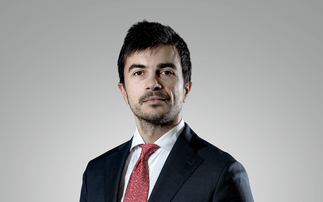NN Investment Partners' Factor Investing team Willem van Dommelen and Stan Verhoeven discuss the benefits of a multi factor investment approach
We have seen factor investing assets grow significantly over the past decade. What do you see as the main developments within this space?
Willem: Well, investors have broadly embraced the concept of factor investing and the value it brings. In the last few years in particular, we have seen an increasing demand for factor-based strategies that go beyond single stock equities and extend into other asset classes, and that target an absolute return. This is a logical and valuable step because the drivers of factor returns, like behavioural biases, are present in all asset classes. By taking a multi asset class approach and combining long and short exposures, investors can further benefit from the added value that factors can bring, namely attractive and diversified returns.
We've seen exponential growth in the number of factors. How do you manage the risk of investing in spurious factors?
Stan: This is clearly a risk. Harvey and Zhu1 named this phenomenon the "factor zoo" as a reflection of the significant increase in the number of factors documented in academic literature. Most of these so-called factors are the result of data-mining, and will probably be unable to deliver excess returns out of sample.
Even though academic literature will continue to provide us with research insights, we believe it is vitally important for managers to research the factors themselves before deciding which ones to adopt. More importantly, as also suggested in the Harvey and Zhu study, a clear economic rationale should be driving the research to help eliminate the risk of spurious factors.
At NN IP we make sure our factors are as simple as possible in order to control the risk of data-mining. Before any data analysis takes place, we extensively review the economic underpinning and the expected behaviour and performance of a factor strategy. Only if the factor behaves according to our economic rationale - and if it is robust and profitable after accounting for transaction costs and other forms of slippage - will it be included in our portfolio.
The last few years have been turbulent, with QE, Brexit and other geo-political events. How did this impact your factor strategy?
Willem: Yes, we've had QE in the market for over a decade but QE is not the first time the central banks stepped in. The value investing approach has been shown to be profitable for almost a century, and during that time central banks have taken many more actions than QE. When it comes to factor investing it is crucial to maintain a long-term view and not be distracted too much by shorter-term dynamics that make people believe that this time it's different. We therefore rely on a very disciplined research and investment process, where we do not apply discretionary overlays to avoid falling into such typical pitfalls.
We have been managing our NN (L) Multi Asset Factor Opportunities fund since 2016. Since then we have been confronted not only with QE, but also with the EU referendum, US elections and a sharp drop in equities in December 2018. During this period our strategy has generated strong returns, which confirms our view that a broadly diversified factor portfolio can deliver an attractive return in all market environments.
Source: 1 Harvey, C.R., Y. Liu, H. Zhu, 2015, …and the Cross-Section of Expected Returns, Review of Financial Studies:5-68











